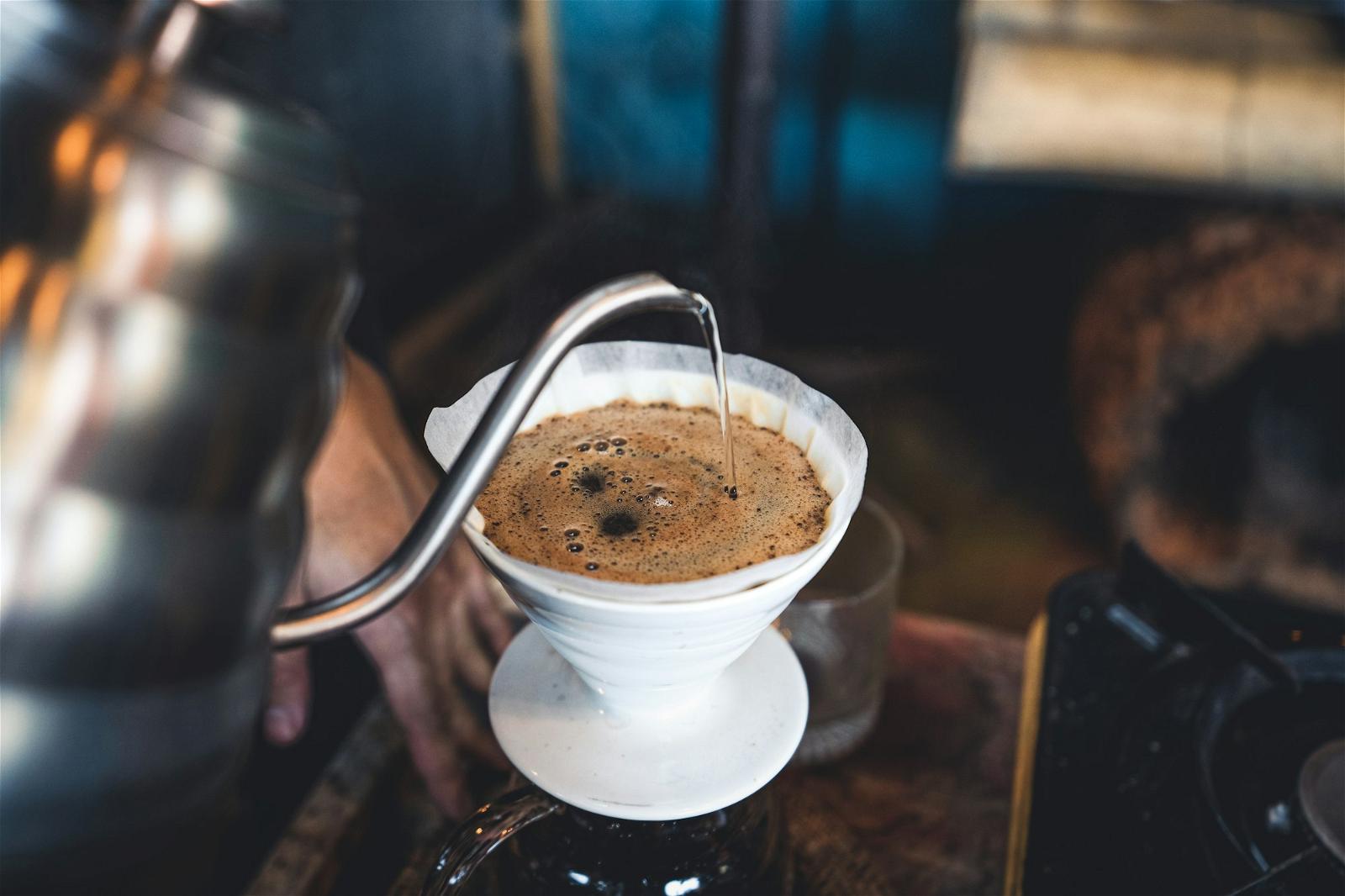Suddenly sipping a bitter brew? Don’t despair! Let’s diagnose the cause of this coffee conundrum and restore your morning ritual to its flavorful glory.
This guide will unlock the secrets behind bitterness and provide expert troubleshooting to get your perfect cup ☕️back on track.

🤔 Why does my coffee taste bitter all of a sudden?
If you’re wondering, “why is my coffee so bitter today?” here are the most common culprits:
Over-extraction: Your Barista’s Secret
When coffee grounds interact with water for too long or the grind is too fine, excessive bitter compounds are released.
Water Quality: It’s Not Just the Beans
Tap water with high mineral content or chlorine can dramatically impact your coffee’s taste. Consider using filtered water.
Freshness Matters: Beans Past Their Prime
Like all good things, coffee has a shelf-life. Old or improperly stored beans can lose flavor and develop bitterness.
☕️ The Usual Suspects: Troubleshooting Brewing Basics
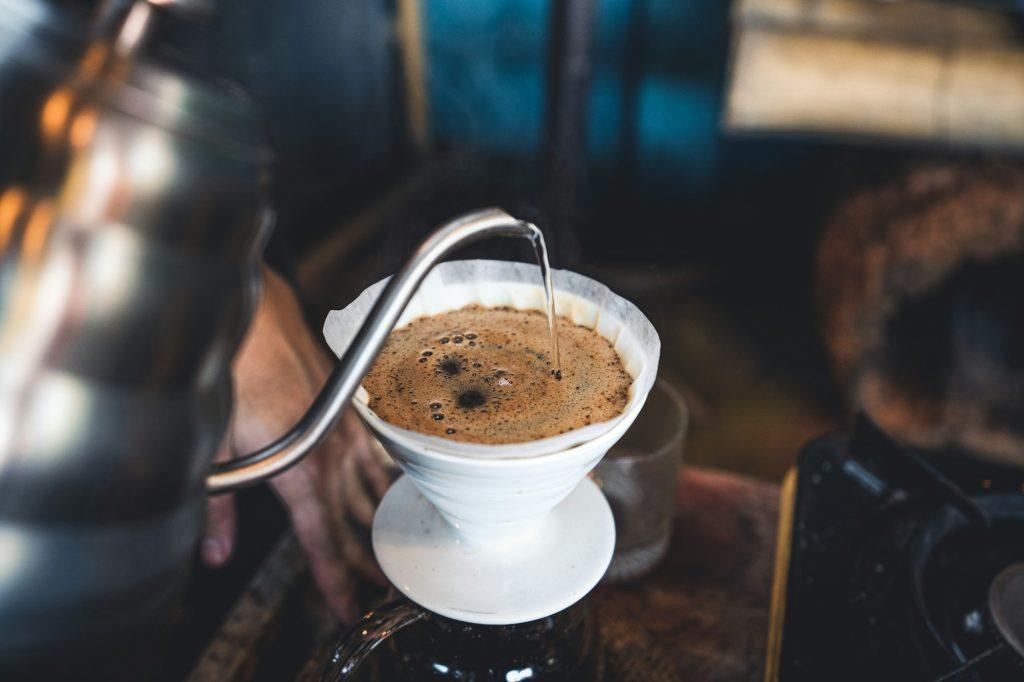
Let’s analyze your brewing method. Here’s a quick guide to avoid over-extraction:
Grind Size Matters:
For a balanced flavor, adjust your grind based on your brewing method.
📝French Press – Coarse Drip – Medium Espresso – Fine
⏰Timing is Key:
Each brewing method has an ideal extraction time. Oversteeping leads to bitterness.
📝 Find recommended times based on your method:
French Press: 4-6 minutes
Pour Over: 2-3 minutes
Espresso: 20-30 seconds
🫘Bean Quality
Choosing the Right Roast
The roast level of your beans can significantly impact the flavor of your coffee.
📝 Here’s a quick breakdown:
Light Roast: Brighter, more acidic flavors. Least likely to taste bitter.
Medium Roast: Balanced flavor with a hint of sweetness. A good choice for avoiding bitterness.
Dark Roast: Bold, robust flavors. More prone to bitterness if over-extracted.
🫘Fresh is Best
Coffee beans start to lose their flavor and aroma as soon as they’re roasted. For the best taste, use beans within 2-3 weeks of their roast date. Store them in an airtight container at room temperature.
💦Water Matters
The Mineral Factor Hard water, which is high in minerals like calcium and magnesium, can make your coffee taste bitter. If you live in an area with hard water, consider using a water softener or filtered water for brewing.
Chlorine Concerns Chlorine, which is often used to treat tap water, can also contribute to a bitter taste. If you notice a chlorine smell in your water, let it sit out for a few minutes before brewing or use a water filter.
🔍 Getting Deeper: The Unexpected Factors
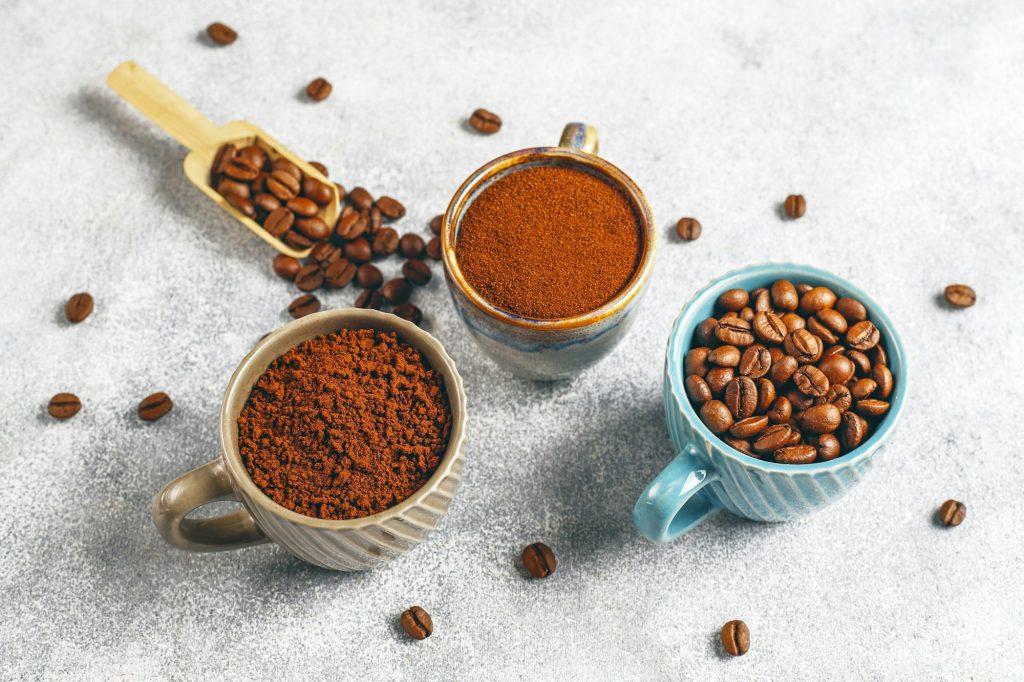
The Grind Dilemma: Consistency is Key
Even if you have the right grind size for your brewing method, inconsistent grinding can lead to over-extraction and bitterness.
Invest in a high-quality burr grinder for the most consistent results.
The Temperature Trick
Water temperature can also impact the flavor of your coffee. If your water is too hot (over 205°F/96°C), it can scorch the beans and lead to a bitter taste.
Aim for a water temperature between 195-205°F (90-96°C) for optimal extraction.
Clean Your Machine
Over time, coffee oils and residue can build up in your coffee maker, leading to bitter flavors.
Regular cleaning and descaling can help keep your brewer in top shape and your coffee tasting its best.
Does Your Mug Hate Coffee?
Believe it or not, the type of mug you use can affect the taste of your coffee.
I once had a customer at the Boat Basin Cafe who complained that their coffee tasted bitter, but only when they used their favorite travel mug.
Turns out, the mug’s material was interacting with the coffee and causing bitterness. Switching to a ceramic or glass mug solved the problem!
💊 Could It Be Something Else?
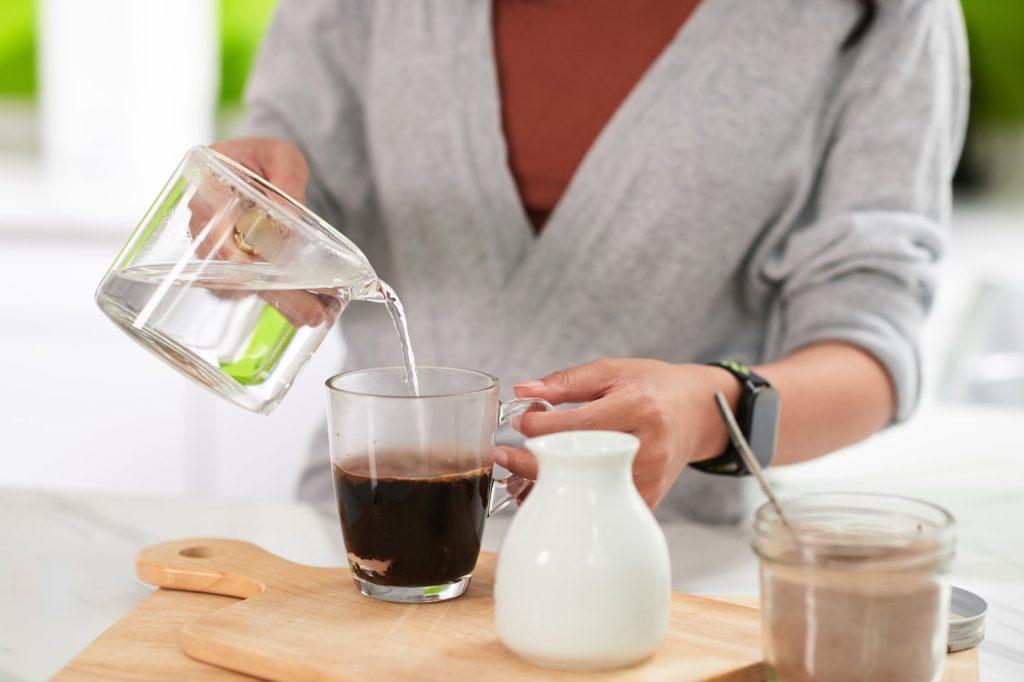
Medications and Taste Changes
Certain medications can alter your sense of taste, making foods and beverages taste different than usual.
If you’ve recently started a new medication and noticed a change in your coffee’s flavor, this could be the culprit. Talk to your doctor if you’re concerned.
Pregnancy and Taste Preferences
Pregnancy can also cause changes in taste preferences. If you’re pregnant and suddenly find your usual coffee too bitter, try switching to a lighter roast or decaf.
As always, consult with your healthcare provider about your caffeine intake during pregnancy.
✨ The “Secret” Fix (+ a Surprising Fact)
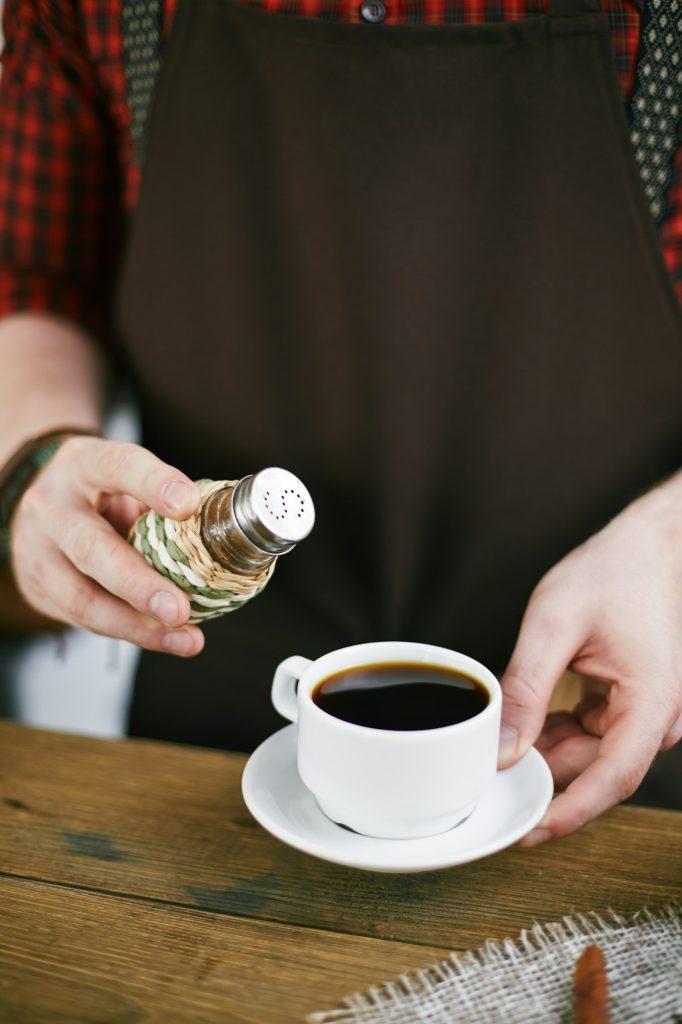
🧂 Salt Trick
If you’ve tried adjusting your brewing method and water quality but still find your coffee too bitter, try adding a pinch of salt to your grounds before brewing.
The salt can help neutralize some of the bitter compounds without making your coffee taste salty.
❓ The Truth About Coffee and Salt: Can Adding Salt to Your Coffee Make You Sick?
🔍 Quick Fix:
The perfect ratio is 1/4 teaspoon of salt per 6 cups of coffee. For a single cup, just a few grains will do the trick!
The Science Behind the Trick
Research has shown that sodium ions can suppress the bitterness of coffee by blocking the taste receptors responsible for detecting bitter compounds. So, a small amount of salt can actually make your coffee taste smoother and less bitter.
💡 Bonus Fact
Acidity vs. Bitterness Many people confuse acidity with bitterness in coffee, but they’re actually two distinct taste sensations.
Acidity refers to the bright, tangy notes in coffee, while bitterness is the harsh, unpleasant taste that can result from over-extraction or poor-quality beans.
☕ As coffee expert James Hoffman explains in his book, “The World Atlas of Coffee,” understanding this difference is crucial for accurately describing and troubleshooting your coffee’s taste (Hoffman, 2018).
Conclusion
If you’ve been struggling with bitter coffee, don’t despair. By fine-tuning your brewing technique, using fresh, high-quality beans, and ensuring optimal water quality, you can bid farewell to bitter and embrace a balanced, flavorful cup.
Remember, small tweaks can yield big results, so don’t be afraid to experiment until you find your perfect brew.
Happy brewing!
For a more in-depth look at coffee extraction basics, check out this article from Espro. And if you’re feeling extra curious, dive into the science behind coffee extraction for a deeper understanding of the process.
References:
Breslin, P. A., Gilmore, M. M., Beauchamp, G. K., & Green, B. G. (1996). Psychophysical evidence that oral astringency is a tactile sensation. Chemical Senses, 21(4), 405-417.
Hoffman, J. (2018). The World Atlas of Coffee: From beans to brewing – coffees explored, explained and enjoyed. Firefly Books.
FAQs
Why is my coffee so bitter all of a sudden?
There are a few reasons your coffee might suddenly taste bitter:
Over-extraction: This means too much flavor was pulled from the grounds. Check your grind size (too fine?), water temperature (too hot?), and brew time (too long?).
Bean Quality: Low-quality beans or overly dark roasts can be naturally more bitter.
Water: Hard water or water high in chlorine can affect the taste of your coffee.
Other Factors: Even things like a dirty mug or recent medication changes can sometimes make coffee taste more bitter.
How do you fix bitter taste in coffee?
Try these quick fixes first:
Adjust your brewing: Experiment with a slightly coarser grind, cooler water, or a shorter brew time.
Check your beans: Are they fresh? Consider trying a different brand or roast.
Filter your water: This can make a big difference if your tap water tastes less than ideal.
A pinch of salt: Sounds weird, but it can neutralize the bitterness!
Why does my coffee taste burnt bitter?
A burnt bitter taste usually means serious over-extraction. Adjust your grind, water temperature, and brew time significantly to avoid this. It’s also possible your beans were roasted too dark.
Why is my coffee not tasting good anymore?
If your coffee doesn’t taste bad, but just not as good as it used to, consider these factors:
Freshness: Coffee beans lose flavor over time. Make sure yours are within their prime.
Clean equipment: A dirty coffee maker or grinder can leave lingering flavors.
Taste changes: Medications or even pregnancy can sometimes alter your taste perception.
